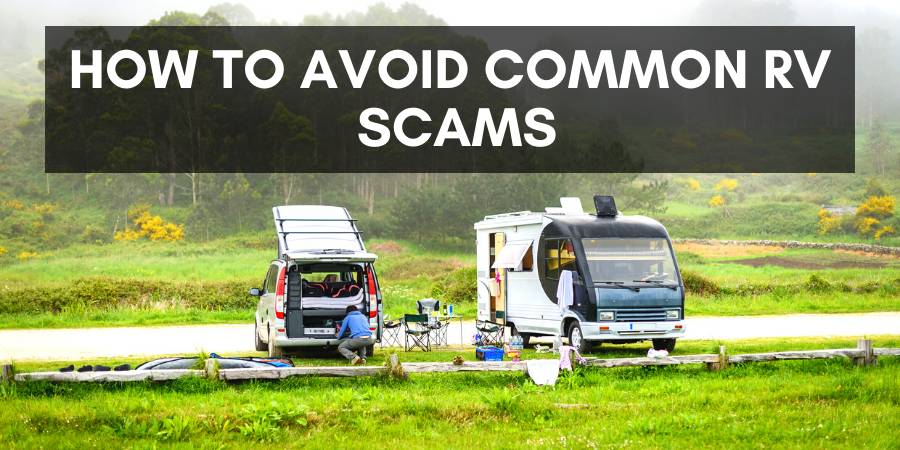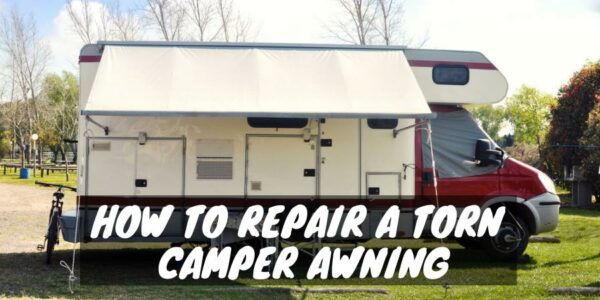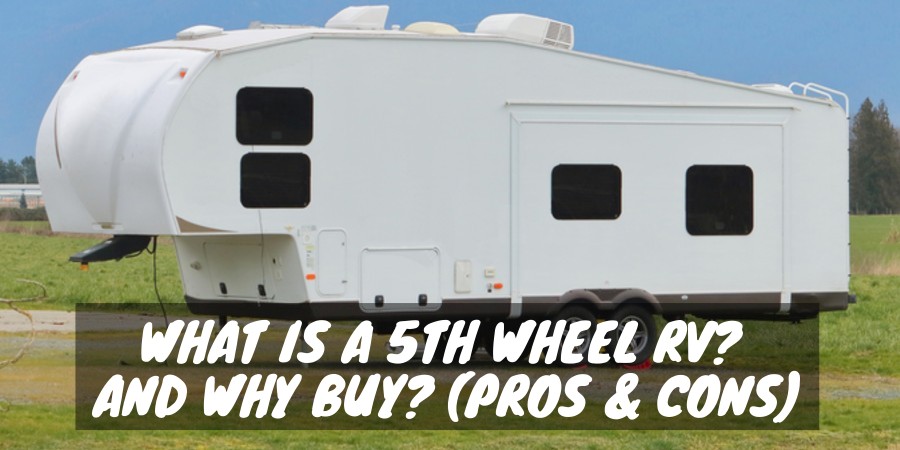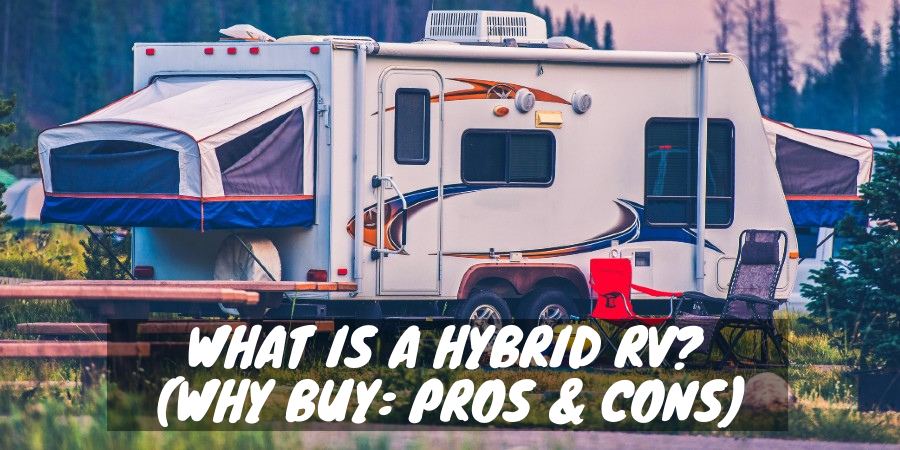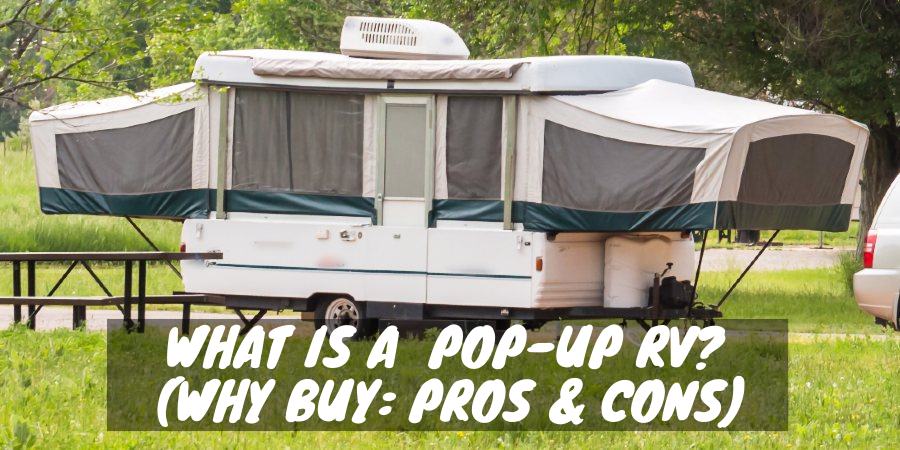Each year, the RV industry brings millions of camping enthusiasts together. Unfortunately, it also brings out predators looking to scam those who stay at RV parks or need recreational vehicle repairs.
Many RVers are unaware of what schemes scammers use to trick people out of their money, so I put them together in this quick guide to help you avoid being a victim.
When you know the RV scam red flags, you can avoid losing money, ruining your camping trip, or putting your RV out of commission, so stay right here to learn more.
Common RV Campground Scams

Two main categories of scams exist in the realm of RV parks and campgrounds. The first category includes scams related to memberships required for access to certain campsites. The second category encompasses scams that could take place at any RV park or campground, regardless of its type or location.
RV Campground Membership Scams
Newcomers to the RV world may not know that some RV park companies offer memberships that allow free camping or significantly reduce the nightly fee.
The most well-known and reputable of these RV campground memberships are:
- Escapees
- Thousand Trails
- Passport America, KOA, Good Sam Club (discount clubs)
Related reading: The 7 Best Camping Discount Clubs
Many private RV parks, especially out west, offer exclusive memberships to their campgrounds, which only paying members can gain access.
Buying into an RV park membership isn’t always a scam, but be cautious of online ads, emails, or flyers posted in campgrounds from “clubs” that offer amazing deals on yearly or lifetime contracts.
You visit the scam website, which looks very legitimate and has excellent reviews from customers with loads of pictures. You’ll also read a blurb about other locations across the US where you’ll have camping privileges (with a list you can only access once you join).
The website will direct you to fill out forms with your info if you’re interested, and a sales representative will contact you shortly.
The fake membership company may only be phishing for your personal information to use to hack into your accounts or to sell as leads to other companies.
However, the scam company may go so far as to get you to join by putting down a deposit or paying upfront for a possibly non-existent campground, one that never has availability or a park that offers subpar amenities.
An example of such a scam was a membership to Thousand Adventures Inc., run by a company out of Nebraska. Notice that the name of the company sounds similar to Thousand Trails, which helps scammers gain trust.
People bought into the Thousand Adventures club for around $2000 a year, with promised access to any of their 56 campgrounds at any time by paying a low daily fee.
The problem was that members couldn’t get a campsite at most of the campgrounds. However, the parks were nearly always full, and many did not take reservations and only used a first-come, first-served system, leaving members no place to stay.
When members tried to cancel their memberships out of frustration, the company met them with threats of legal action and continual notices of payment due.
All Seasons Resort was another RV membership that scammed customers, ultimately leading these companies to go bankrupt, leaving all their members with losses.
Unfortunately, more such RV memberships pop up every day, pulling in more victims.
The best way to protect yourself is to do your due diligence before purchasing any RV campground membership.
Don’t fall for high-pressure sales tactics that state only a few memberships remain, and research any company thoroughly.
Go online and ask about the membership in RV forums, where people from all over the US will chime in about whether or not the company is legit, a fraud, or just difficult to use, making the value useless.
RV Campground Membership Resale Scams
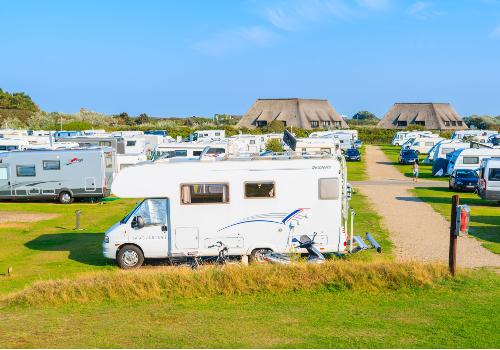
A much bigger sector of RV membership scams involves the contract resale from both legitimate companies and those that do not exist in real life.
RV campground lifetime memberships involve an upfront payment, then yearly dues, plus administrative and campground maintenance fees.
As members either give up RV travel or find the burden of the yearly dues too much, they look to sell off the contract.
Becoming an RV membership resale broker is a top choice for scammers. Many are fly-by-night companies that work by offering to offload your contract for a flat fee.
If you have a $6,000 membership to a legitimate RV camping company and want to recoup some of your investment, paying a broker $300-$500 may seem reasonable, especially if the time to pay yearly dues is coming near.
The catch is that the broker collects the fees from as many victims as they can and then disappears when customers begin to complain or ask questions about why their contract hasn’t been sold.
Never work with an RV park membership resale broker who wants an upfront payment to sell your contract. A legitimate company will take a percentage of the final sale price or only charge you a flat rate once they sell the contract.
Other brokers sucker buyers into paying for a fake membership, offering very realistic-looking contracts for legitimate RV membership clubs.
Typically, these brokers attract victims by posting “must-sell” or “greatly reduced” memberships for sale on RV-related websites and social media platforms.
Please don’t fall for it. Instead, always visit the websites of well-known membership companies to get a phone number so you can call them directly to get information or sign up.
A side note is to never buy a lifetime membership without reading the fine print.
Most contracts stipulate you can never cancel the membership and only allow you to resell it to another RVer. This clause keeps you on the hook for possibly decades of ever-rising yearly dues and maintenance fees if you can’t unload it.
RV Park “Guest” Scams
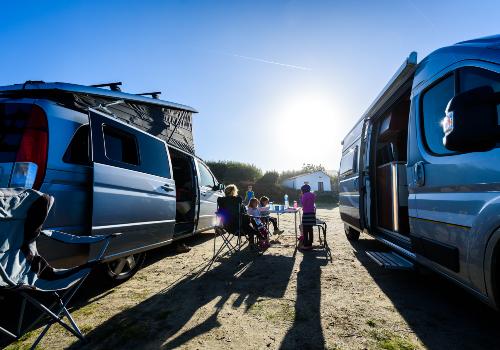
It’s not uncommon for RVers to pick up some side jobs while traveling to offset camping expenses.
Some like to offer haircuts, dog walking, RV or car washing, or cleaning RV interiors. Others sell crafts or products to fellow campground guests.
Each RV park has rules on soliciting inside their campground, but many don’t monitor these transactions closely, which leaves the door open for scammers to make a move.
Some RV guests will have a sob story about tight times or how they are leaving the area and offer to sell you their annual pass for beach parking or nearby state or national parks for a low cost.
By the time you pay them and test out the pass, you find out it’s not valid or that you need to show an ID that must match the original name on the card, making it worthless.
The same concept goes for camping supplies. I had someone approach me at a large campground offering three new in-line RV water filters for only $10. He said he didn’t need them since he would be putting his camper in storage.
While at first glance they looked new, upon closer inspection, they felt a bit too heavy, and the threads had damage under the protective caps.
I told him I thought the water filters were used, and he quickly took them and moved on, hoping to find someone less observant so he could make a quick buck. I let the RV office know about the incident, but they didn’t seem to care.
Also, be leery of hiring anyone from a campground who stays there long-term and approaches you to offer services or just seems overly chatty while intently looking about your campsite.
This scam works because scammers walk around the park to check out the newcomers and talk to guests (and offer their services) when they spot camping gear or other personal belongings of value.
If you hire them for a job, they show up to do the work and do a nice job, so they gain a good reputation around the campground.
They then tell a local thief about the items, and overnight, your expensive fishing poles or Yeti cooler are gone. Later, the “worker” gets a cut of the profits when the thief pawns or sells the items.
Since many RVers only stay at a park for a weekend or week, putting two and two together about this scam is often tricky, and why it keeps working.
To protect your valuables, always lock up expensive items overnight or whenever you leave the campground, no matter how safe you think the park is and even if they have a security patrol.
State or National Park Membership Scams

Many RVers love to camp at state and national parks and visit those along their travel route to enjoy hikes, fishing, boating, biking, bird watching, and other outdoor activities.
The access to low-cost fun is why RVers on a budget love the savings a park entrance membership provides, so they can visit as many times as they like for a year or a lifetime without having to pay the daily entrance fee.
The problem is that scammers know that many people purchase such membership passes online and post ads offering discounts to entice unsuspecting customers over to a fraudulent website.
Once you purchase the pass, you never get a card in the mail or an e-verification for your phone, or if you do, it won’t work when you try to access the facilities.
State parks in California have such an issue with this scam they now post warnings on social media that camping passes should only cost $10 and must be purchased through their website or in person at the location.
To avoid being a victim of this scam, always purchase national, state, or local park passes directly from the vendor and be aware that no passes are transferable to another person, as a matching ID is necessary to gain entry.
Social Media RV Scam
RV giveaways are a hot post on social media these days. But never click on the links to enter, as these are all scam ads to phish for your information.
The posts on Facebook or other social media sites look like they are from a large RV manufacturer or dealership, which is a ruse to get people to trust that it’s safe to enter the contest.
Want to Connect With a Community of Over 1,078 RV Enthusiasts?
After entering your information, the scammers quickly sell off your data to companies looking for leads. Then, you’ll most likely have a “salesperson” contact you within a few weeks or months, trying to sell you an RV or offer to help you gain financing if you only give them a bit more information.
Remember that legitimate giveaways or contests for RVs or camping equipment from recreational vehicle manufacturers or dealers will only be posted on the company web page and never in a clickbait ad.
Most top RV brands are targets of this scam, and it remains an ongoing issue across all social media platforms.
Popular RV Repair Scams to Watch Out For
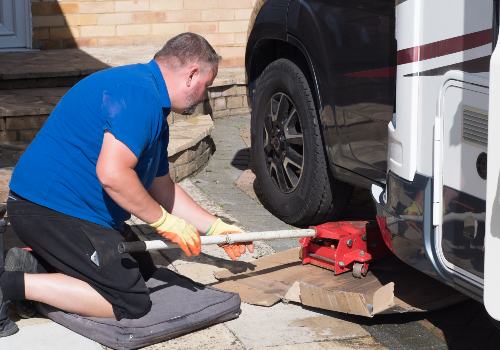
When your RV breaks down, it’s rarely near a convenient service center with expert RV technicians.
Scammers understand that RVers are traveling and want to get back on the road quickly, which allows them to take advantage by offering “emergency” repairs that part with your money.
Next up are the RV repair scams to watch for so you don’t add more problems to your already broken travel trailer, fifth wheel, or motorhome.
Mobile RV Repair Scams
Mobile repair services are abundant in areas with numerous campgrounds and are a convenient option for RV owners who can’t or prefer not to move from their campsite to get their RV fixed.
While there are many reputable mobile RV repair companies, finding one in an emergency may be difficult. The best mobile techs are often very busy and may not have time to fit you into their schedule.
Hiring the first repair company who can visit your campsite can lead to having a scammer:
- Overcharge you for the work
- Installing knock-off parts that will fail quickly
- Doing shoddy work that leaves your RV in worse condition
I know of far too many RVers who think mobile repair technicians all have expert training or are honest. Instead, many are freelancers with minimal skills who are only looking to make a quick buck off the ever-changing RV crowd.
One RVing friend paid $800 for an RV refrigerator repair job that should have been $350, and another had a near fire from the mobile tech wiring a converter incorrectly. However, I think the worst was one couple who gave the technician cash to buy the part in need, and the man never returned or was seen again.
Getting restitution for scam service is next to impossible. Either the shady repair service goes out of business (only to reappear under a new name), or your travels prevent you from pursuing legal action through the courts.
To protect yourself from RV mobile repair service scams, research reviews of the company online and ask campground staff to recommend the best local company. Then, if you have time, get at least two estimates for repair and ask to see proof of current licenses and insurance.
Lastly, always pay for the repair with a credit card, which will provide a layer of protection to dispute any faulty work, and never pay cash upfront for parts or labor.
RV Roof Repair Scams
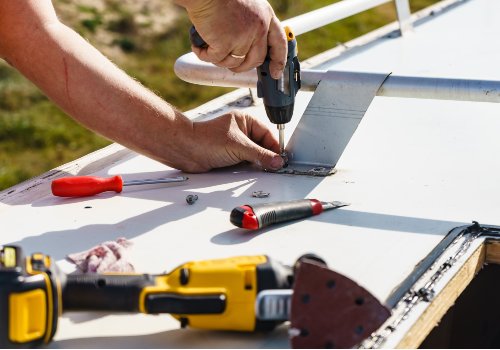
Leaky RV roofs are common, and a niche group of scammers now advertise companies that will come to your campsite or home to fix the problem.
Most will offer to recoat the roof with a paint-like rubber coating after inspecting and filling in any large gaps with a caulk sealant.
The scam with these companies is that they charge you $50-$100 per gallon (plus labor) for the roof seal coating but then use cheap latex paint instead.
Many of these scam artists will offer you a tempting discount if you pay for the work in cash, which should be a red flag.
Scammers will remove the label (or reuse an old can) from a legitimate RV roofing product and attach it to a paint can to trick you into thinking they are applying a quality sealant.
The two products can look very similar once dry, and many RV owners don’t have the physical ability to climb onto the roof for a close inspection.
Once it rains, though, the roof repair does nothing to stop leaks into your camper, causing even more damage you may or may not catch right away.
The paint will also peel and crack, making your RV look terrible, and will be costly and time-consuming to remove.
Final Thoughts
RVers are a fun, friendly, and trusting crowd, making it much easier for scammers to slide in and use clever ways to steal your money.
I hope the common RV scams above alert you to possible ways people may try to take advantage of your good nature and fool you into paying for expensive repairs, campground memberships, or products you don’t need or are fraudulent.
When you know what RV scams to watch out for, you will quickly notice the red flags and stop scammers dead in their tracks!
Don’t Get Scammed by RV Repair Shops (Video)
"Man cannot discover new oceans unless he has the courage to lose sight of the shore."
-- Andre Gide

